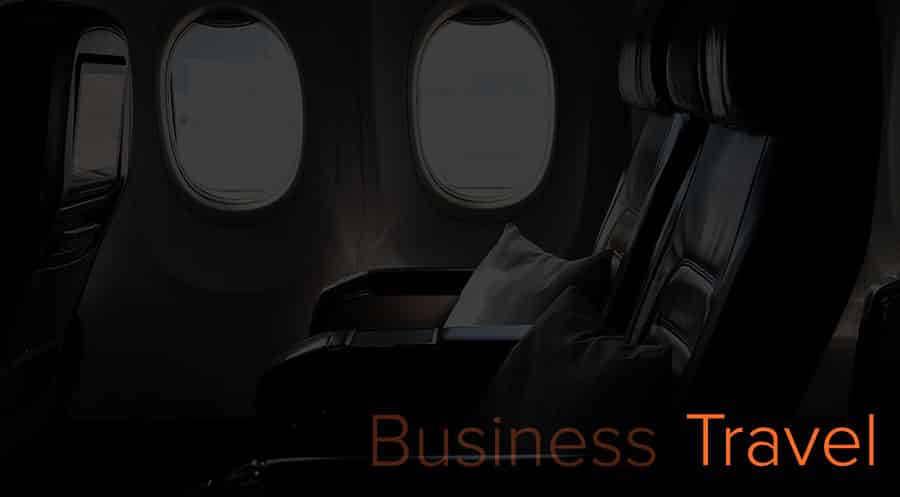The 3 Biggest Mistakes Companies Make When Crafting Their Travel Policies

Travel managers and accountants are confronting the rising phenomenon of business travelers “going rogue” – scoffing at strict corporate travel policies and skirting the rules to customize their trips. Truthfully, this practice has probably always been part of the nature of corporate travel, especially since transportation and hospitality organizations began to stress the importance of loyalty programs. But the trend seems to be reaching new heights as more Millennials move up the corporate ladder.
Millennial opinions on business travel differ from those of older generations, and this is especially true when you compare them to Baby Boomers. In general, Millennials are already going on more business trips more frequently than their older colleagues, and they value different aspects of the experience. Based on the results from the Future of Travel study that was conducted by Expedia and Egencia, 51 percent of Millennial business travelers believe hotel loyalty points are important compared to 30 percent for those aged 46 to 65.
Another driving factor in this direction is the rise of “bleisure travel,” which is when employees take advantage of the locations they visit for business by adding on fun experiences once they’re free from their professional obligations. This is one of the main reasons why Millennials are a little looser with the company pocketbook on their trips than older employees, with up to 16 percent more Millennials indicating they’re comfortable splurging for high-end meals.
They are also much more comfortable with using a mobile device when booking travel and during the trip to enhance their experience. This way, they can change their itineraries and preferences and access all the travel information they can handle at any time. We’ve come a long way from the days when corporate travel managers were the keepers of the keys and all requests went directly through them.
Mistakes You Might Be Making
Rather than tighten the strings and demand that employees adhere to a travel policy that was designed for a different era, business leaders should strive to create a more inclusive policy. Millennial business travelers and their habits are here to stay, and forward-thinking organizations can find a way to balance the needs and budget of the company with the satisfaction of their valuable employees.
Here are some mistakes companies commonly make in their travel policies:
- They don’t align their policies with their culture.
If your company culture is built to attract talented Millennial employees, why wouldn’t you have a similar philosophy for business travel? If the company travel policy is handed down to team members from atop a hierarchical structure, they might not understand why certain regulations exist (and will be more likely to bend the rules). Give the people who will actually have to follow the rules some say in them. That way, you’ll have input from a variety of sources and will make your employees’ lives easier when they’re representing you on the road. - They’re too strict.
Rigidity may save a few dollars on negotiating rates, but it’s often more counterproductive than you think. So many organizational travel policies are based on strict rules that don’t apply to the modern world. If an employee would rather stay at a more expensive hotel than is recommended based on his loyalty status there, perhaps he’d be willing to reallocate some of his meal per diem in exchange. - They neglect to use data to analyze the effectiveness of the current policy.
Many executives are happy if they find a less expensive solution for their corporate travel booking software. What they don’t consider is that the new option may be costing more in lost time if team members are struggling to get the most out of it.In that same vein, too many executives simply assume they need to cut travel expenses across the board in order to help the company, whereas a diligent review of the data may reveal otherwise. The first step in drafting any new travel policy should be a rigorous examination of what’s working and what isn’t. You may find that employees ordering room service gives them more time to get their work done or that spending a little extra for a comprehensive airline Wi-Fi package allows them to be remarkably productive — they won’t be distracted by phone calls when they’re cruising at 39,000 feet, after all.
Creating a well-structured travel policy that maximizes the company’s investment while allowing Millennial travelers to be productive and satisfied on their trips will undoubtedly require some trial and error. You’ll have to assess the state of your current failings and successes in detail, gather input from many parties to create a policy aligned with your culture, and then test, measure, compare, and improve.
But if you’re aware of the mistakes that so many companies are falling into and adjust your approach accordingly, you’ll be able to adopt a travel policy that conforms to a new age. And ultimately, you’ll attract and retain top Millennial talent by demonstrating that you value their input — no matter how much they spend on room service.
+++++++++
Have you read?
Why leaders and organisations need to become “ambidextrous”
The 15 Most Admired People In Tech Among IT Professionals, 2016
10 Most Popular Holiday Destinations For Chinese Tourists, 2016
Meet The Top 8 Highest-Paid Women CEOs in America, 2015
Written by: Tony Tie, Expedia Canada.
Bring the best of the CEOWORLD magazine's global journalism to audiences in the United States and around the world. - Add CEOWORLD magazine to your Google News feed.
Follow CEOWORLD magazine headlines on: Google News, LinkedIn, Twitter, and Facebook.
Copyright 2025 The CEOWORLD magazine. All rights reserved. This material (and any extract from it) must not be copied, redistributed or placed on any website, without CEOWORLD magazine' prior written consent. For media queries, please contact: info@ceoworld.biz








